Part of the membership application process in Philippine Skyrunning Association (PhilSky), is the requirement to attend the yearly Sky Learning Series (SLS). These classes are not the usual academic nor running clinic classes, but are an utmost important set of skills that a Skyrunner, a Mountaineer, adventure Racer, or even a trail Runner may need for survival and/or rescue purposes.
Last year (September 1, 2013), the 2nd module of the SLS -- Rope Skills and Rescue training was held at Kampo Uno in UP Diliman. The class was spearheaded by Mr. Ramon "Mon" Marchan from Rope Access Services and Consulting Inc. (RASC). Mr. Mon is one of the PhilSky Pioneer member and also the President of High Angle Rescue Team (HART). He was participated by other people from RASC Philippines who assisted us during the rappelling and rescue drills.
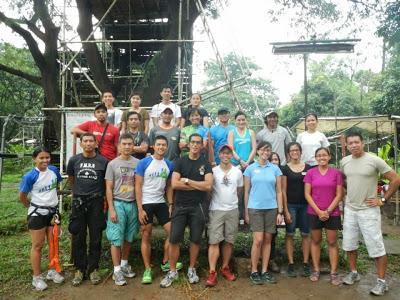
PhilSky's SLS2 Participants
Attended by both the PhilSky members and 2013 PhilSky applicants, the full lecture lasted for almost the whole day and tackled about three (3) major topics: Rope Rescue Safety and Equipments; Knot-tying and Rope harness; and Rappelling -- the favorite of everyone which also includes the rope ascend and descend skills. After these mind-opening skills topic, an actual demo of rope rescue was also shown at the rappelling wall of Kampo Uno to give us a clearer idea on how this kind of skill can save your and other peoples' lives.
Below are some of the nutshells of the training. Pardon me though as I wouldn't be able to describe in words how the different knot-tying are done, some of the knot-ties though have links to a step-by-step knot-tying animation.
The lecture began with safety rules and reminders that must be put into heart by anyone doing any rope-climbing activity. These safety rules are like mini-bible that will save your own life.
- Margin of Safety (MOS)
- Backup (BU)
- Check-Double-Check (CDC)
- Attention to Detail (ATD)
- Know Your Way Out (WO)
- Ignorance
- Casualness
- Memory decay (ugh!)
- Overconfidence
- Distraction
- Stubornness
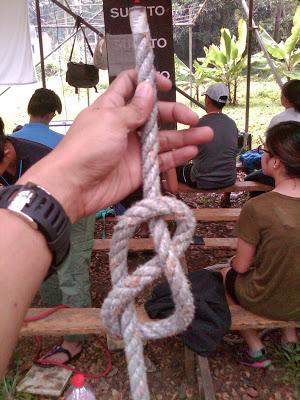
Simple - basic knot-tie of the figure 8, mostly used as a stopper.
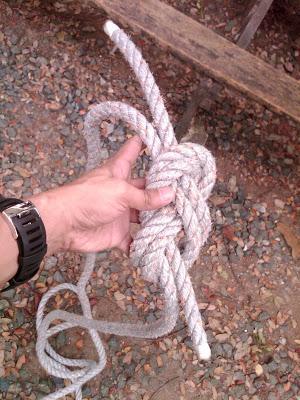
Bend (Join) - provides a safe and simple way to join two ropes. The two ropes should not differ very much in size and for safety, the ends should be longer. After joining, each end of the rope should be tied around the other standing end (using double overhand stopper knot or a square knot).
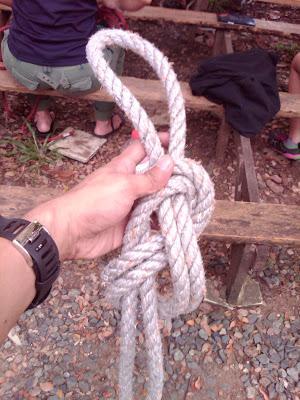
Loop - allows a simple and reliable Figure-8 loop to be tied to an open-ended post or a bar.
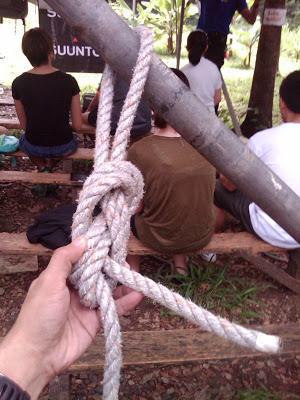
Follow Through - just like the Loop but the process of tying starts with a Figure-8 knot from the attachment point, then the tail-end follows through the original Figure-8 knot in reverse. This knot allows a simple and reliable Figure 8 loop to be tied to a ring, a carabiner, or your own harness.
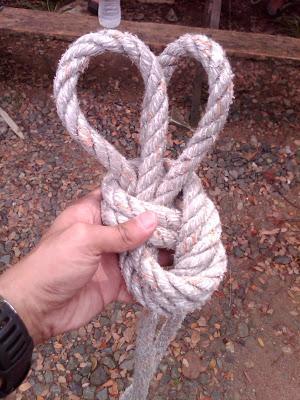
Double Loop (Bunny ears) - based on the simple Figure-8 knot but uses two double-loops. This knot can be used as an improvised seat (i.e. rope rescue), or to equalize loads. This knot is more stable because it is unlikely to slip so that one loop gets larger at the expense of the other loop.
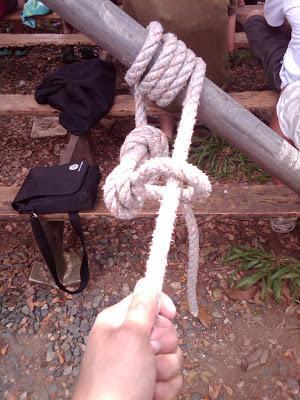
Tensionless Hitch - does not belong to the Figure-8 family, but is an essential knot use to gain a secure control of heavy loads. Notice that a Figure-8 Loop is used on one end, a carabiner may also be attached on this end.
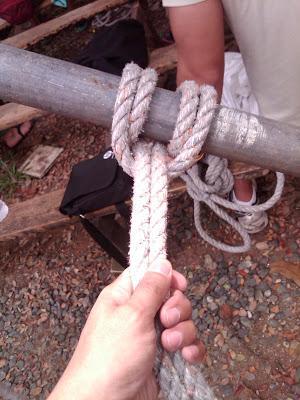
Prusik Knot - a piece of cord with joined ends using the Figure-8 bend loop. This is often used for climbing (ascender or descender) by sliding it through a static rope.
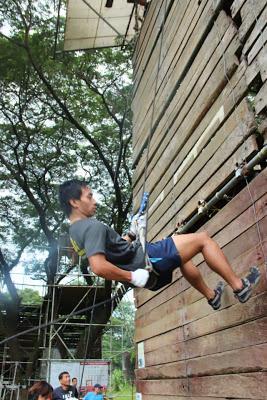
Rappelling down on an improvised rope harness called the diaper wrap
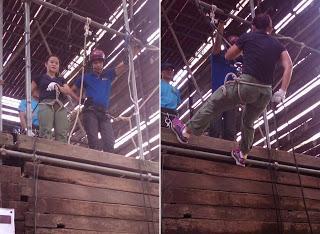
Front and view of the diaper wrap harness on Ms. Nina Dacanay while rappelling
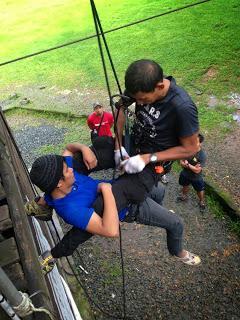
Rope rescue demo. The guy on the blue shirt and bonnet is the one who is being rescued, while Sir Mon Marchan, the one on top is the rescuer
*Knot-tying photos are owned by the author while the rappelling, rescue, and group photo is courtesy of Mr. Romano Cortes Jorge.



